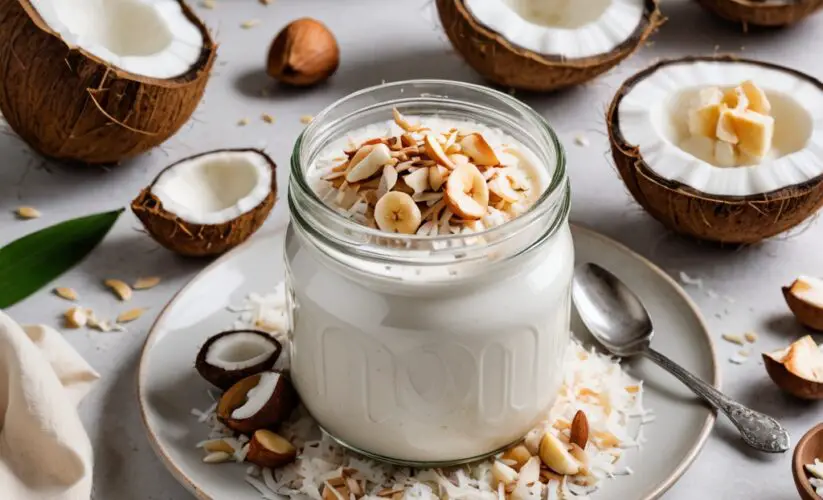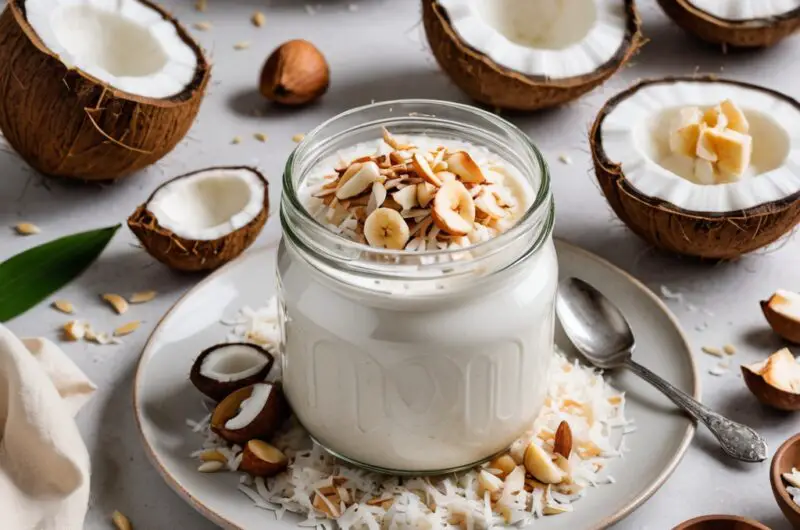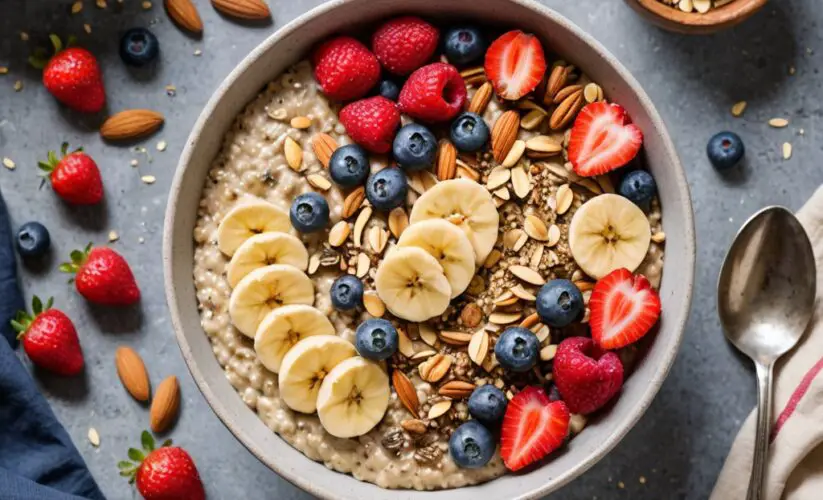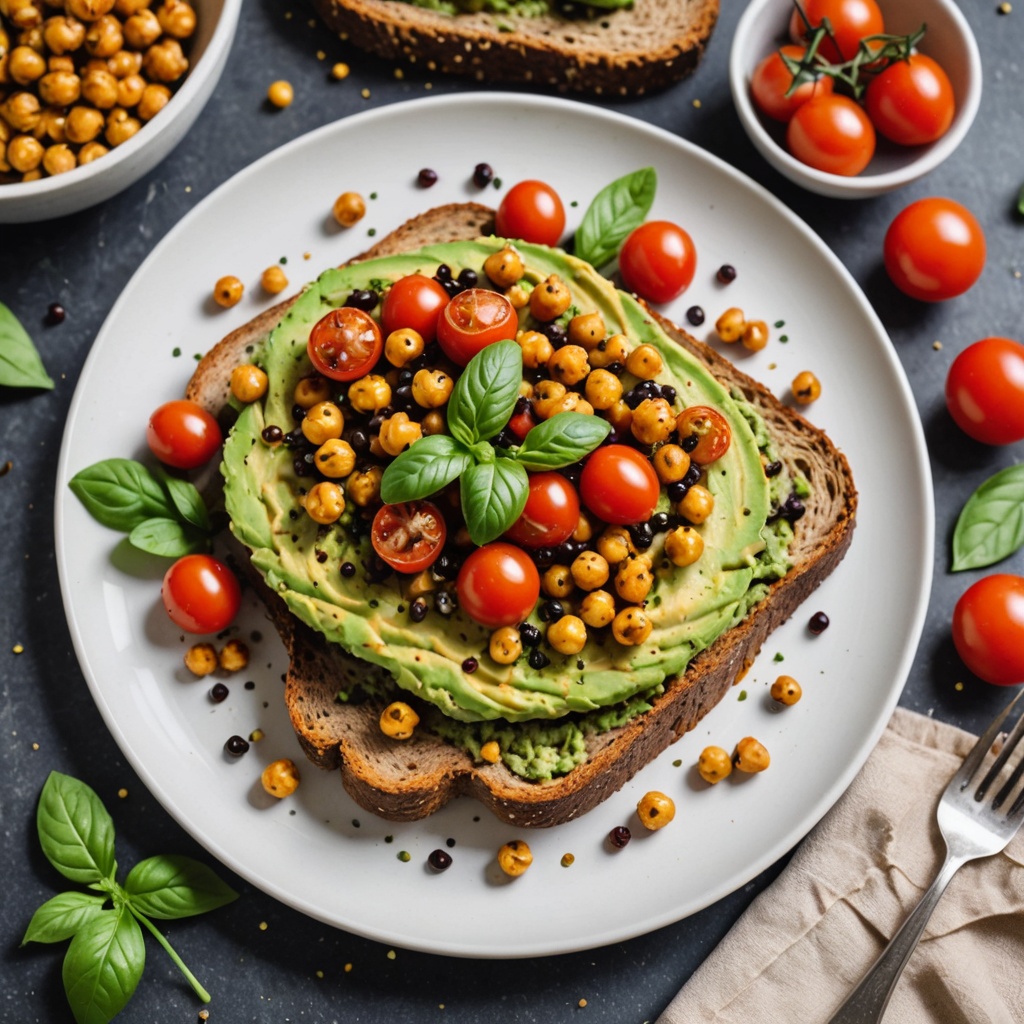
Coconut Milk Nutrition: Benefits, Uses, and How to Make It at Home
Homemade Coconut Milk: A Nutrient-Rich Alternative for Wellness Coconut milk is more than just a versatile, dairy-free option – it’s a powerhouse of essential nutrients and healthy fats that can contribute significantly to your overall wellness. By making your own at home, you’re not only avoiding additives and preservatives often found in store-bought versions, but you’re also tapping into a wealth of health benefits. This creamy, flavorful beverage is rich in medium-chain triglycerides (MCTs), which may boost energy and support weight management. It’s also a good source of vitamins and minerals, including manganese, copper, and selenium, which play crucial roles in maintaining a healthy immune system, promoting skin health, and supporting strong bones. Perfect for those following vegan, paleo, or lactose-free diets, homemade coconut milk can be an excellent addition to smoothies, curries, and baked goods. Its lauric acid content may help improve HDL (good) cholesterol levels, potentially supporting heart health. Additionally, the antimicrobial properties of coconut milk can aid in boosting your body’s natural defenses. Let’s dive into this simple recipe that will not only elevate your culinary creations but also support your journey towards a healthier lifestyle.
Health Benefits
Here’s a blog-ready explanation of the nutritional benefits of the homemade coconut milk recipe:
The Nutritional Power of Homemade Coconut Milk: Benefits for Skin, Hair, and Immune Health
Our homemade coconut milk recipe isn’t just delicious; it’s a powerhouse of nutrients that can benefit your skin, hair, and immune system. Let’s explore the science behind these benefits:
Skin Health:
Coconut milk is rich in medium-chain fatty acids (MCFAs), particularly lauric acid. These healthy fats have been shown to:
- Moisturize the skin: MCFAs can penetrate the skin deeply, providing long-lasting hydration and reducing dryness.
- Fight signs of aging: The vitamin C and copper in coconut milk support collagen production, helping to maintain skin elasticity and reduce the appearance of fine lines.
- Soothe inflammation: Lauric acid has anti-inflammatory properties that can help calm irritated skin and reduce redness.
Hair Health:
The nutrients in coconut milk can work wonders for your hair:
- Promote hair growth: The protein content in coconut milk can strengthen hair follicles and encourage growth.
- Moisturize and condition: The natural oils in coconut milk can penetrate the hair shaft, providing deep hydration and reducing frizz.
- Scalp health: Lauric acid’s antimicrobial properties can help combat dandruff and other scalp issues.
Immune System Support:
Coconut milk contains several compounds that can boost your immune system:
- Lauric acid: This MCFA is converted to monolaurin in the body, which has potent antiviral and antibacterial properties.
- Vitamins and minerals: Coconut milk provides essential nutrients like vitamin C, iron, and selenium, which play crucial roles in immune function.
- Antioxidants: The presence of antioxidants helps combat oxidative stress and supports overall immune health.
Scientific Explanation:
The benefits of coconut milk are largely attributed to its unique fatty acid profile. Unlike long-chain fatty acids found in many other foods, the MCFAs in coconut milk are metabolized differently in the body. They’re quickly absorbed and can be used for energy production, rather than being stored as fat.
A study published in the Journal of Cosmetic Science found that coconut oil (a major component of coconut milk) can penetrate hair shafts better than other oils, reducing protein loss and improving hair strength.
Furthermore, research in the Journal of Medicinal Food highlighted the antimicrobial effects of lauric acid against various pathogens, supporting its potential role in immune health.
By making your own coconut milk at home, you’re ensuring that you get all these benefits without any added preservatives or artificial ingredients. This nutrient-rich alternative not only enhances your culinary creations but also contributes to your overall health and well-being.
While coconut milk offers numerous benefits, it’s also calorie-dense. Enjoy it as part of a balanced diet to reap its rewards without overconsuming calories. Here’s to your health!
Nutritional Information
Here’s a detailed nutritional breakdown for the Homemade Coconut Milk recipe, along with its potential wellness advantages:
Nutritional Information (per 1 cup/240ml serving):
Total Fat: 17g
- Saturated Fat: 15g
- Monounsaturated Fat: 0.8g
- Polyunsaturated Fat: 0.2g
Carbohydrates: 5g - Dietary Fiber: 3g
- Sugars: 2g
Protein: 2g
Vitamins and Minerals:
- Vitamin C: 1.1mg (1% DV)
- Vitamin E: 0.2mg (1% DV)
- Vitamin K: 0.2μg (<1% DV)
- Thiamin (B1): 0.02mg (2% DV)
- Riboflavin (B2): 0.01mg (1% DV)
- Niacin (B3): 0.4mg (3% DV)
- Vitamin B6: 0.03mg (2% DV)
- Folate: 8μg (2% DV)
- Pantothenic Acid: 0.2mg (4% DV)
- Calcium: 16mg (1% DV)
- Iron: 1.6mg (9% DV)
- Magnesium: 44mg (10% DV)
- Phosphorus: 90mg (7% DV)
- Potassium: 350mg (7% DV)
- Zinc: 0.7mg (6% DV)
- Copper: 0.3mg (33% DV)
- Manganese: 1.5mg (65% DV)
- Selenium: 6.2μg (11% DV)
Medium-Chain Triglycerides (MCTs): Approximately 7g per serving
Potential Wellness Advantages:
- Heart Health Support: The high content of lauric acid, a type of saturated fat, may help improve HDL (good) cholesterol levels.
- Immune System Boost: Lauric acid also has antimicrobial properties that may support immune function.
- Weight Management Aid: MCTs are quickly metabolized and may help increase feelings of fullness and boost calorie burning.
- Bone Health Promotion: The presence of phosphorus and manganese contributes to maintaining strong bones.
- Antioxidant Properties: Coconut milk contains selenium, which acts as an antioxidant, potentially protecting cells from damage.
- Electrolyte Balance: The potassium content helps maintain proper fluid balance in the body.
- Skin Health Support: The healthy fats and vitamins may contribute to maintaining skin elasticity and hydration.
- Digestive Health: The fiber content can aid in promoting healthy digestion and regular bowel movements.
The optional ingredients (sea salt and vanilla extract) are not included in this breakdown as they contribute minimal nutritional impact.
12 Delicious Ways to Enjoy Your Homemade Coconut Milk
There are many ways to consume homemade coconut milk. Here are some popular options:
- Drink it straight: Enjoy it chilled as a refreshing beverage.
- In coffee or tea: Use it as a dairy-free creamer alternative.
- Smoothies: Add it to your favorite smoothie recipes for extra creaminess.
- Cereal or oatmeal: Pour it over your morning cereal or use it to make creamy oatmeal.
- Baking: Use it in place of dairy milk in cakes, muffins, and other baked goods.
- Curries and soups: It’s a staple in many Asian cuisines, perfect for creamy curries and soups.
- Ice cream: Use it as a base for homemade dairy-free ice cream.
- Sauces: Create creamy sauces for pasta or vegetables.
- Chia pudding: Mix with chia seeds for a nutritious pudding.
- Frozen treats: Make popsicles or frozen yogurt alternatives.
- Pancakes or waffles: Use it in the batter or as a topping.
- Hot chocolate: Create a rich, dairy-free hot chocolate.
Remember to shake the coconut milk well before each use, as separation is natural. Also, keep in mind its high calorie content and consume in moderation as part of a balanced diet.
Incorporating homemade coconut milk into your daily diet can be a delicious and nutritious choice. This creamy, plant-based alternative is rich in healthy fats, particularly medium-chain triglycerides (MCTs), which can provide quick energy and support weight management. It’s also packed with essential minerals like manganese, copper, and iron, contributing to overall health and wellbeing. By adding coconut milk to your morning coffee, smoothies, or cooking, you’re not only enhancing flavor but also boosting your intake of beneficial nutrients. Remember, while coconut milk offers numerous health benefits, it’s calorie-dense, so moderation is key to enjoying its advantages as part of a balanced diet.
The Ultimate Guide to Coconut Milk: Health Advantages and Recipe Ideas
Course: Recipe Collection, VeganCuisine: MediterraneanDifficulty: Easy4
servings15
minutes350
kcalIngredients
2 cups unsweetened shredded coconut
4 cups hot water (not boiling)
1/4 tsp sea salt (optional)
1 tsp vanilla extract (optional)
Directions
- Add the shredded coconut to a high-speed blender.
- Pour the hot water over the coconut. If using, add the sea salt and vanilla extract.
- Blend on high speed for 1-2 minutes until the mixture is creamy and well combined.
- Line a large bowl with a nut milk bag or cheesecloth.
- Carefully pour the blended coconut mixture into the lined bowl.
- Gather the edges of the nut milk bag or cheesecloth and gently squeeze to extract all the liquid. This is your coconut milk.
- Transfer the coconut milk to a clean glass jar or bottle.
- Refrigerate the coconut milk for at least 2 hours before using. It will keep in the refrigerator for 3-4 days.
- Before each use, shake the jar well as separation is natural.
- The remaining coconut pulp can be used in baking or added to smoothies for extra fiber.
- Preparation tips
- Hot, Not Boiling: Your water should be hot, but not boiling. Think “nice hot bath” temperature. This helps extract all the coconutty goodness without any burnt flavors.
- Blender Power: Use the highest speed on your blender. More power means more creaminess!
- Patience Pays: When straining, don’t rush it. Gentle squeezing gets you more milk and less mess.
- Double Duty: Want extra creamy milk? Try blending the strained pulp again with fresh hot water for a second batch.
- Flavor Boost: Feel free to add a pinch of salt or a splash of vanilla. It’s your milk, make it your way!
- Chill Out: Let your milk cool completely before refrigerating to prevent any funky flavors.
- Shake It Up: Remember, separation is natural. Just give your milk a good shake before using.
- Waste Not: Don’t toss that leftover pulp! It’s great in smoothies or baked goods.
- Tool Time: A nut milk bag makes straining easier, but cheesecloth works too. In a pinch, a clean t-shirt can do the job!
- Measure Smart: Eyeball the coconut in your blender. If it looks too packed, go easy on the water at first. You can always add more!
Note
- Store your creamy coconut creation in an airtight container in the fridge for up to 4 days, giving it a good shake before each use to remix any natural separation!
This homemade coconut milk is rich in medium-chain triglycerides (MCTs), which can boost energy and support weight management. It’s also a good source of minerals like manganese, copper, and iron. Enjoy this creamy, nutritious milk as a base for smoothies, in your morning coffee, or use it in cooking to add a delightful coconut flavor to your dishes.






